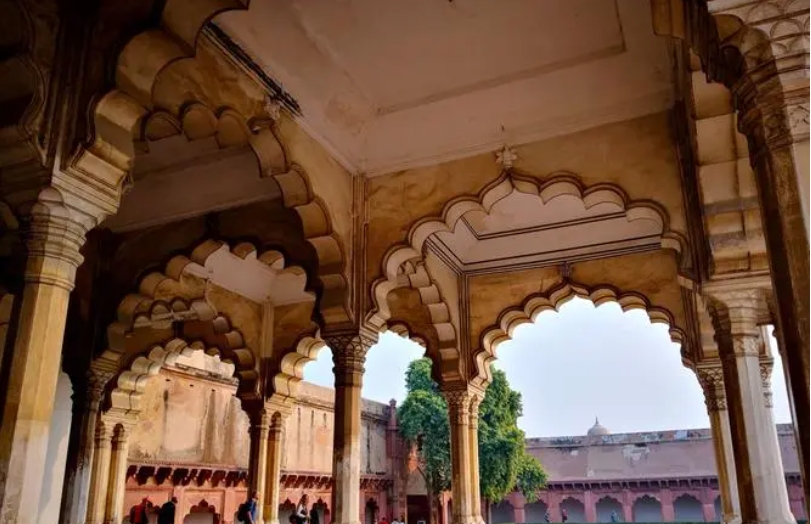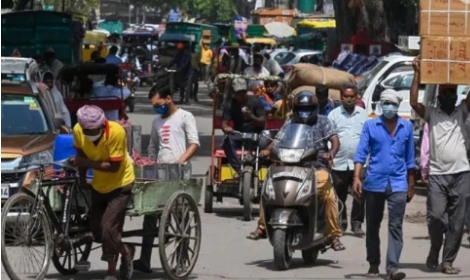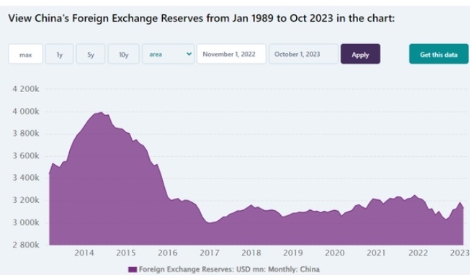英国讨厌印度吗?
正文翻译

Does UK hate India?
英国讨厌印度吗?

Does UK hate India?
英国讨厌印度吗?
评论翻译
Himanshu Partap
I don't know from where these Brits get the guts to declare a thousands years of civilisation so primitive…
Railways, roads are gifts to Indian by British For your kind information, many countries have these things, even better than yours, which were not even colonized.
We use dial ups, floppy disk, what?? we have way bigger hands and contribution in information technology world then yours.
You really think we lurk over your British cars and engineering. I tell what Indian only see them as how ridiculous they are. Every Rolls Royce cars I have seen are the ugliest things humans have made and it's features are also Boring when compared to German, Asian counterparts.Jlr is only able to enter India because it is owned by an Indian conglomerate, TATA group. They are well respected and reputed here, not because it is British products
我不知道这些英国人从哪来的胆量宣称一个几千年的文明如此原始.
铁路和公路是英国人送给印度的礼物,供你参考,许多国家都有这些东西,甚至比你的更好,甚至没有被殖民过。
我们使用拨号上网、软盘和什么的,我们在信息技术世界里的贡献比你们大得多。
你真的以为我们对你们的英国汽车和工程学趋之若鹜吗?我告诉你们,印度人只觉得它们是多么的荒谬。我见过的每一辆劳斯莱斯汽车都是人类制造的最丑陋的东西,与德国、亚洲的同类车相比,它的功能也相当乏味。捷豹路虎之所以能进入印度市场,是因为它隶属于一家印度企业集团——塔塔集团,是因为塔塔集团在印度受到尊重和享有声誉,可不是因为它是英国产品。
And very thank you for that 100 million dollars aid which you offered after looting 45 trillion dollars wealth in your last 30 years of colony.
You cannot neglect the exploitation, mass killings, GENOCIDEs, inhumane oppression, cultural damage of people and celebrate that at the end that they are democratic which we fought to snatch from you.
Now, do uk hate Indians? I don't know what the hell did we Indian do to them rather serving as cashcow to them for 2 centuries. And what with this ‘we have Indians here'… they are working for uk only and nearly all are British citizens. They are born there only. They don't contribute much to India. Your total GDP contribution to us is even less than that govt spents on fertilizer subsidies.
We Indians also have no time to think of you too. But when we see the attitude of you British media as they still focus more over our negative sides. It once gives us idea about your shameless mentality
We just admit at last that ‘these cowards were just shameless when our people were dying because of them, how can expect them to have sympathy if they even don't want to have atonement about their wrongdoings and hiding colonial facts like some con person’
非常感谢你们在30年殖民历史期掠夺了45万亿美元财富后提供的1亿美元援助。
你们不能忽视剥削、大规模杀戮、种族灭绝、非人道压迫、文化破坏和人民的苦难,而且也有庆祝他们最终实现了民主,而这是我们通过战胜你们所换来的。
现在,英国人恨印度人吗?我不知道我们印度人除了在两个世纪里作为他们的摇钱树,到底对他们做了什么。还有这个“我们这里有印度人”……他们完全为英国工作,几乎所有人都是印度公民,他们完全是在那里出生的。他们对印度的贡献微乎其微。你们对我们的GDP贡献甚至比政府在化肥补贴上的花费还要少。
我们印度人也没有时间考虑你们。但当我们看到你们英国媒体的态度时,他们仍然更关注我们的负面方面。这一度让我们了解了你们的无耻心态。
我们最终承认,“当我们的人民因他们而死亡时,这些懦夫真是无耻,如果他们连自己的错误都不想赎罪,还像骗子一样隐瞒殖民事实,怎么能指望他们有同情心。”
Yogesh Rana
During the period of British colonial rule, India underwent a series of economic and social changes that profoundly impacted the country's industrialization process. The British implemented what is known as "de-industrialization" on India's industrial production, particularly in steel manufacturing, shipbuilding, and handloom weaving. This process led to the decline of the Indian economy and the loss of resources.
In terms of steel production, British colonial policies led to the decline of India's indigenous steel industry. By controlling the export of raw materials and restricting the development of local industries, the British significantly reduced India's steel production capabilities. This not only weakened India's industrial base but also turned India into a market for British industrial products.
In the shipbuilding industry, the British took a series of measures to limit India's ship manufacturing capabilities. By controlling the construction and maintenance of ships, the British ensured India's dependence on British ships, thereby further consolidating their economic and political influence in India.
Handloom weaving, a traditional and significant industry in India, also suffered a severe blow during the colonial period. The British disrupted the Indian handloom market by importing cheap machine-made textiles, leading to unemployment among many artisans and the gradual disappearance of traditional crafts.
在英国殖民统治期间,印度经历了一系列的经济和社会变革,这些变革对印度的工业化进程产生了深远的影响。英国人对印度的工业生产,特别是钢铁生产、造船业和手织布业进行了所谓的“去工业化”(de-industrialization),这一过程导致了印度经济的衰退和资源的流失。
在钢铁生产方面,英国的殖民政策导致了印度本土钢铁业的衰落。英国通过控制原材料的出口和限制印度本土工业的发展,使得印度的钢铁生产能力大幅下降。这不仅削弱了印度的工业基础,还使得印度成为了英国工业产品的市场。
在造船业方面,英国同样采取了一系列措施来限制印度的船只制造能力。通过控制船只的建造和维修,英国确保了印度对英国船只的依赖,从而进一步巩固了其在印度的经济和政治影响力。
手织布业是印度传统的重要产业之一,但在殖民时期也遭受了严重的打击。英国通过进口廉价的机制布料,破坏了印度的手织布市场,导致许多手工业者失业,传统工艺逐渐消失。
The British also introduced the Zamindari system, a land revenue system that altered land ownership and agricultural production patterns in India. Under this system, the British granted land to zamindars, who became the tax collectors and were responsible for levying rent and taxes on farmers. This practice resulted in farmers losing land ownership, with many becoming tenants who had to pay high rents and taxes, significantly exacerbating the poverty and discontent among the farming community.
Furthermore, during the British colonial rule, India's share of the world's GDP plummeted from 23% to 0.2%, a massive economic decline directly related to British colonial policies and the exploitation of Indian resources.
Regarding the issue of famines, the land policies and tax systems of the British colonial government are considered one of the key factors leading to multiple famines. The Zamindari system left farmers without adequate resources and protection in the face of natural disasters, and the colonial government often failed to provide effective relief measures, leading to the severe consequences of famines.
In summary, British colonial rule had a profound impact on India's economic and social structure, with policies and practices that largely hindered India's industrialization process and led to social injustice and economic decline.
英国人还引入了柴明达里制度(Zamindari system),这是一种土地税收制度,它改变了印度的土地所有权和农业生产模式。根据这一制度,英国将土地授予柴明达(zamindars),他们成为土地的收税人,并负责向农民征收租金和税款。这种做法导致了农民失去土地所有权,许多农民被迫成为佃农,他们不得不支付高额的租金和税款,这在很大程度上加剧了农民的贫困和不满。
此外,英国殖民统治期间,印度的GDP占世界总量的比例从23%下降到了0.2%,这一巨大的经济衰退与英国的殖民政策和对印度资源的剥削有着直接的关系。
关于饥荒问题,英国殖民政府的土地政策和税收制度被认为是导致多次饥荒的关键因素之一。柴明达里制度使得农民在面临自然灾害时缺乏足够的资源和保障,而殖民政府往往未能提供有效的救济措施,导致饥荒的严重后果。
综上所述,英国殖民统治对印度的经济和社会结构产生了深远的影响,这些政策和做法在很大程度上阻碍了印度的工业化进程,并导致了社会不公和经济衰退
Avinash Singh
Thanks for the History lesson! Assuming you are not an Indian and one of the products of the “Fine British Culture", you don't know SHIT!!! Your cozy schools did not teach you what our families went through post Independence. Stop being your Queen's mouthpiece and come visit India for a real history lesson. You brand us as the Victim, its time you realise who is the Villain. You hate Hitler but you fail to realise that your Churchill was an equal fascist supremacist who drove us to hundred years of darkness. We have “earned" our rights to play the Victim's card. Do you have the balls to accept the crimes your forefathers committed in the Indian subcontinent? I guess not!!!
感谢你的历史课!假设你不是印度人,而是“优秀英国文化”的产物,你是根本不懂这些的!你们舒适的学校没有教会你们我们的家庭在独立后所经历的一切。别再当女王的喉舌了,来印度上一堂真正的历史课吧。你把我们打上了受害者的烙印,是时候让你意识到谁才是恶棍了。你们恨希特勒,但你们没有意识到你们的丘吉尔是一个同等的法西斯至上主义者,他让我们陷入了一百年的黑暗。我们已经“赢得”了打受害者牌的权利,你有胆量接受你的祖先在印度次大陆犯下的罪行吗?我猜没有!
Clemont the Outspokenly Based
I would very much agree with this statement. The British stole 45 trillion dollars from India, and we are still suffering the problem. After the british left, even now India is a quite poor country. Even after they left, our parents had to collect money for almost a month to just get a 50 rupees reynolds jetter pen. Can you imagine the economic situation they did? 45 trillion dollars is something that takes more than a hundred years for an averagely growing nation, and now comparing to other countries, our India’s economy is still bad, and yes the British media should learn something from Japan of how they have generously apologised for their GENOCIDE.
我非常同意这个说法。英国人从印度偷走了45万亿美元,因这个问题,我们仍在遭难。在英国人离开后,即使现在印度也是一个相当贫穷的国家。即使他们离开后,我们的父母为买一支50卢比的雷诺杰特的钢笔也得攒一个月时间。你能想象他们造成的经济状况吗?45万亿美元对于一个平均增长的国家来说需要100多年的时间,现在与其他国家相比,我们印度的经济仍然很糟糕,英国媒体确实应该向日本学习,学习他们是如何大方地为他们的种族灭绝道歉的。
Rajendra Gowda
go read comment section on youtube channels of western media whenever india achieves something, or UK’s newsportal comment section’s on india’s achievement and then say, who is racist
每当印度取得成就时,去看看油管上西方媒体的评论区,或者英国新闻网站对印度成就的评论区,然后说,谁是种族主义者。
Aastha Anand
Why do Indians even have to care about other countries adoring them or not. India was subjected to British rule for ages hence some form of hostility would be inevitable. But honestly speaking, I like Britain…in fact my favorite writer and favourite actor is British. I would really love to spend a few years in Britain amidst so many wonderful things.
为什么印度人还要关心其他国家是否喜欢他们。印度过去长期受到英国的统治,因此某种形式的敌意是不可避免的。但老实说,我喜欢英国……事实上,我最喜欢的作家和最喜欢的演员都是英国人。我真的很想在英国生活几年,享受那里许多美好的事物。
George Emsden
Why would the UK hate India? In a food survey a few years ago, Curry was voted the most popular food - more even that roast beef and Yorkshire pudding or fish and chips.
If you have not visited India, may I suggest that you do so and stay there for a month or more. It might broaden your mind
为什么英国要恨印度?在几年前的一项食物调查中,咖喱被评为最受欢迎的食物,甚至超过了烤牛肉、约克郡布丁或炸鱼薯条。
如果你没有去过印度,我建议你去那里呆一个月或呆更长时间,它可能会开阔你的视野。
Lakshman Reddy
I stayed up in Newcastle uk for an year. Probably UK is very safest, lovely and amazing country with well behaved people. I saw the btitoners are really well manner d individuals.
As far as my stay in UK , best in my life.
Cool weather, nice pubs and restaurants , it's was my pleasure to work with British people , they are really amazing
我在英国纽卡斯尔待过一年。可能英国是一个非常安全、令人愉快且令人惊叹的国家,人们行为良好。我发现英国人真的是非常有礼貌。
就我在英国的生活而言,那是我一生中最好的时光。
天气凉爽,酒吧和餐馆不错,和英国人一起工作是我的荣幸,他们真的很棒。
ALeC MILLeN (England)
i hate curry but not India. The UK doesn’t hate India, at least not yet. The UK hates racism so maybe if the UK was to realise how racist India is, it would lead to hatred. It’s stange that the UK doesn’t hate India yet, isn’t it? All the countries with nuclear weapons seem to hate all the other countries with nuclear weapons usually?
我讨厌咖喱,但并不讨厌印度。英国并不讨厌印度,至少目前为止还没有。英国憎恨种族主义,所以如果英国意识到印度是何等的种族主义,可能会导致仇恨。英国还没有讨厌印度,这不是很奇怪吗?通常所有拥有核武器的国家都讨厌其他拥有核武器的国家,不是吗?
Om Kumar
Yes it's natural and expedient for Britishers to abhor Indians as the finest race who have celestial prerogative to tame and civilize the beasts, barbarians and uncouths in India.
对于英国人来说,憎恶印度人是自然而然且有利的,因为英国人认为他们是最优秀的种族,拥有天赐的特权去驯服和教化在印度的道德败坏的人、野蛮和粗俗之人。
James Emmans
India is a rising power and will only make the ‘established’ countries less important as the years go by. In time this negative reaction should subside and normal relations will develop.
Many jobs have migrated to India - but the western companies can see the cost advantages.
To sum it up India is a rising power in this world.
随着时间的推移,印度是一个正在崛起的大国,只会让“老牌”国家变得不那么重要。随着时间的推移,这种负面反应应该会消退,正常关系将会发展。
许多工作岗位已经转移到印度——但西方公司可以看到成本优势。
总而言之,印度是世界上一个崛起的大国。
Sachin Krishnan
I won’t hate my own country. This country gave me a shelter, gave freedom to live and a better education. No matter wherever I fly, I would give my country as the first priority.
You may find aloat of reasons to hate, but for me India feels the safest to live and I don’t give a damn for politics as am completely neutral. So whoever rules, that doesn’t actually matter for me.
A special note to that person who wrote this question, if you are an Indian or from any other country; India will always keep heads up, no matter what the situation that am damn sure. India is getting recovered and our entire nation is fighting it together.
我不会恨我自己的国家。这个国家给了我庇护,给了我生活的自由和更好的教育。无论我飞到哪里,我都会把我的国家放在第一位。
你可能会找到一大堆讨厌的理由,但对我来说,印度是最安全的生活所在,我根本不在乎政治,因为我是完全中立的。所以不管是谁统治,对我来说都不重要。
如果你是印度人或其他国家的人,我要特别提醒这个问题的作者;不管什么情况,印度会一直保持警惕。印度正在恢复,我们整个国家都在一起战斗。
Pooja Iyer
Hate is a strong word. I don’t think there is anything in my life that I hate. Do I dislike certain things that I dislike about the people in India? Probably. Do I get disappointed by certain actions that take place in my mother land? Probably. But, I wouldn’t say I hate any of it. All of these emotions are also towards the people and their actions. Not towards the country itself.
Is your question about when I will stop disliking certain actions of the people that currently behave like nobody apart from them care about the country? If that is the case, I wouldn’t want to answer that here, because that would be a deviation from the topic.
憎恨是一个强烈的词。我不认为我的生活中有我憎恨的事情。我是否不喜欢印度人民的某些事情?可能吧。我是否对在我祖国发生的某些行为感到失望?可能吧。但我不会说我憎恨它们中的任何一个。所有这些情绪也是针对人和他们的行为,而不是针对国家本身。
你的问题是我什么时候才会停止讨厌这些人的某些行为,他们现在的行为就像除了他们没有人关心这个国家一样?如果是这样的话,我不想在这里回答这个问题,因为这会偏离主题。
Himanshu Partap
I don't know from where these Brits get the guts to declare a thousands years of civilisation so primitive…
Railways, roads are gifts to Indian by British For your kind information, many countries have these things, even better than yours, which were not even colonized.
We use dial ups, floppy disk, what?? we have way bigger hands and contribution in information technology world then yours.
You really think we lurk over your British cars and engineering. I tell what Indian only see them as how ridiculous they are. Every Rolls Royce cars I have seen are the ugliest things humans have made and it's features are also Boring when compared to German, Asian counterparts.Jlr is only able to enter India because it is owned by an Indian conglomerate, TATA group. They are well respected and reputed here, not because it is British products
我不知道这些英国人从哪来的胆量宣称一个几千年的文明如此原始.
铁路和公路是英国人送给印度的礼物,供你参考,许多国家都有这些东西,甚至比你的更好,甚至没有被殖民过。
我们使用拨号上网、软盘和什么的,我们在信息技术世界里的贡献比你们大得多。
你真的以为我们对你们的英国汽车和工程学趋之若鹜吗?我告诉你们,印度人只觉得它们是多么的荒谬。我见过的每一辆劳斯莱斯汽车都是人类制造的最丑陋的东西,与德国、亚洲的同类车相比,它的功能也相当乏味。捷豹路虎之所以能进入印度市场,是因为它隶属于一家印度企业集团——塔塔集团,是因为塔塔集团在印度受到尊重和享有声誉,可不是因为它是英国产品。
And very thank you for that 100 million dollars aid which you offered after looting 45 trillion dollars wealth in your last 30 years of colony.
You cannot neglect the exploitation, mass killings, GENOCIDEs, inhumane oppression, cultural damage of people and celebrate that at the end that they are democratic which we fought to snatch from you.
Now, do uk hate Indians? I don't know what the hell did we Indian do to them rather serving as cashcow to them for 2 centuries. And what with this ‘we have Indians here'… they are working for uk only and nearly all are British citizens. They are born there only. They don't contribute much to India. Your total GDP contribution to us is even less than that govt spents on fertilizer subsidies.
We Indians also have no time to think of you too. But when we see the attitude of you British media as they still focus more over our negative sides. It once gives us idea about your shameless mentality
We just admit at last that ‘these cowards were just shameless when our people were dying because of them, how can expect them to have sympathy if they even don't want to have atonement about their wrongdoings and hiding colonial facts like some con person’
非常感谢你们在30年殖民历史期掠夺了45万亿美元财富后提供的1亿美元援助。
你们不能忽视剥削、大规模杀戮、种族灭绝、非人道压迫、文化破坏和人民的苦难,而且也有庆祝他们最终实现了民主,而这是我们通过战胜你们所换来的。
现在,英国人恨印度人吗?我不知道我们印度人除了在两个世纪里作为他们的摇钱树,到底对他们做了什么。还有这个“我们这里有印度人”……他们完全为英国工作,几乎所有人都是印度公民,他们完全是在那里出生的。他们对印度的贡献微乎其微。你们对我们的GDP贡献甚至比政府在化肥补贴上的花费还要少。
我们印度人也没有时间考虑你们。但当我们看到你们英国媒体的态度时,他们仍然更关注我们的负面方面。这一度让我们了解了你们的无耻心态。
我们最终承认,“当我们的人民因他们而死亡时,这些懦夫真是无耻,如果他们连自己的错误都不想赎罪,还像骗子一样隐瞒殖民事实,怎么能指望他们有同情心。”
Yogesh Rana
During the period of British colonial rule, India underwent a series of economic and social changes that profoundly impacted the country's industrialization process. The British implemented what is known as "de-industrialization" on India's industrial production, particularly in steel manufacturing, shipbuilding, and handloom weaving. This process led to the decline of the Indian economy and the loss of resources.
In terms of steel production, British colonial policies led to the decline of India's indigenous steel industry. By controlling the export of raw materials and restricting the development of local industries, the British significantly reduced India's steel production capabilities. This not only weakened India's industrial base but also turned India into a market for British industrial products.
In the shipbuilding industry, the British took a series of measures to limit India's ship manufacturing capabilities. By controlling the construction and maintenance of ships, the British ensured India's dependence on British ships, thereby further consolidating their economic and political influence in India.
Handloom weaving, a traditional and significant industry in India, also suffered a severe blow during the colonial period. The British disrupted the Indian handloom market by importing cheap machine-made textiles, leading to unemployment among many artisans and the gradual disappearance of traditional crafts.
在英国殖民统治期间,印度经历了一系列的经济和社会变革,这些变革对印度的工业化进程产生了深远的影响。英国人对印度的工业生产,特别是钢铁生产、造船业和手织布业进行了所谓的“去工业化”(de-industrialization),这一过程导致了印度经济的衰退和资源的流失。
在钢铁生产方面,英国的殖民政策导致了印度本土钢铁业的衰落。英国通过控制原材料的出口和限制印度本土工业的发展,使得印度的钢铁生产能力大幅下降。这不仅削弱了印度的工业基础,还使得印度成为了英国工业产品的市场。
在造船业方面,英国同样采取了一系列措施来限制印度的船只制造能力。通过控制船只的建造和维修,英国确保了印度对英国船只的依赖,从而进一步巩固了其在印度的经济和政治影响力。
手织布业是印度传统的重要产业之一,但在殖民时期也遭受了严重的打击。英国通过进口廉价的机制布料,破坏了印度的手织布市场,导致许多手工业者失业,传统工艺逐渐消失。
The British also introduced the Zamindari system, a land revenue system that altered land ownership and agricultural production patterns in India. Under this system, the British granted land to zamindars, who became the tax collectors and were responsible for levying rent and taxes on farmers. This practice resulted in farmers losing land ownership, with many becoming tenants who had to pay high rents and taxes, significantly exacerbating the poverty and discontent among the farming community.
Furthermore, during the British colonial rule, India's share of the world's GDP plummeted from 23% to 0.2%, a massive economic decline directly related to British colonial policies and the exploitation of Indian resources.
Regarding the issue of famines, the land policies and tax systems of the British colonial government are considered one of the key factors leading to multiple famines. The Zamindari system left farmers without adequate resources and protection in the face of natural disasters, and the colonial government often failed to provide effective relief measures, leading to the severe consequences of famines.
In summary, British colonial rule had a profound impact on India's economic and social structure, with policies and practices that largely hindered India's industrialization process and led to social injustice and economic decline.
英国人还引入了柴明达里制度(Zamindari system),这是一种土地税收制度,它改变了印度的土地所有权和农业生产模式。根据这一制度,英国将土地授予柴明达(zamindars),他们成为土地的收税人,并负责向农民征收租金和税款。这种做法导致了农民失去土地所有权,许多农民被迫成为佃农,他们不得不支付高额的租金和税款,这在很大程度上加剧了农民的贫困和不满。
此外,英国殖民统治期间,印度的GDP占世界总量的比例从23%下降到了0.2%,这一巨大的经济衰退与英国的殖民政策和对印度资源的剥削有着直接的关系。
关于饥荒问题,英国殖民政府的土地政策和税收制度被认为是导致多次饥荒的关键因素之一。柴明达里制度使得农民在面临自然灾害时缺乏足够的资源和保障,而殖民政府往往未能提供有效的救济措施,导致饥荒的严重后果。
综上所述,英国殖民统治对印度的经济和社会结构产生了深远的影响,这些政策和做法在很大程度上阻碍了印度的工业化进程,并导致了社会不公和经济衰退
Avinash Singh
Thanks for the History lesson! Assuming you are not an Indian and one of the products of the “Fine British Culture", you don't know SHIT!!! Your cozy schools did not teach you what our families went through post Independence. Stop being your Queen's mouthpiece and come visit India for a real history lesson. You brand us as the Victim, its time you realise who is the Villain. You hate Hitler but you fail to realise that your Churchill was an equal fascist supremacist who drove us to hundred years of darkness. We have “earned" our rights to play the Victim's card. Do you have the balls to accept the crimes your forefathers committed in the Indian subcontinent? I guess not!!!
感谢你的历史课!假设你不是印度人,而是“优秀英国文化”的产物,你是根本不懂这些的!你们舒适的学校没有教会你们我们的家庭在独立后所经历的一切。别再当女王的喉舌了,来印度上一堂真正的历史课吧。你把我们打上了受害者的烙印,是时候让你意识到谁才是恶棍了。你们恨希特勒,但你们没有意识到你们的丘吉尔是一个同等的法西斯至上主义者,他让我们陷入了一百年的黑暗。我们已经“赢得”了打受害者牌的权利,你有胆量接受你的祖先在印度次大陆犯下的罪行吗?我猜没有!
Clemont the Outspokenly Based
I would very much agree with this statement. The British stole 45 trillion dollars from India, and we are still suffering the problem. After the british left, even now India is a quite poor country. Even after they left, our parents had to collect money for almost a month to just get a 50 rupees reynolds jetter pen. Can you imagine the economic situation they did? 45 trillion dollars is something that takes more than a hundred years for an averagely growing nation, and now comparing to other countries, our India’s economy is still bad, and yes the British media should learn something from Japan of how they have generously apologised for their GENOCIDE.
我非常同意这个说法。英国人从印度偷走了45万亿美元,因这个问题,我们仍在遭难。在英国人离开后,即使现在印度也是一个相当贫穷的国家。即使他们离开后,我们的父母为买一支50卢比的雷诺杰特的钢笔也得攒一个月时间。你能想象他们造成的经济状况吗?45万亿美元对于一个平均增长的国家来说需要100多年的时间,现在与其他国家相比,我们印度的经济仍然很糟糕,英国媒体确实应该向日本学习,学习他们是如何大方地为他们的种族灭绝道歉的。
Rajendra Gowda
go read comment section on youtube channels of western media whenever india achieves something, or UK’s newsportal comment section’s on india’s achievement and then say, who is racist
每当印度取得成就时,去看看油管上西方媒体的评论区,或者英国新闻网站对印度成就的评论区,然后说,谁是种族主义者。
Aastha Anand
Why do Indians even have to care about other countries adoring them or not. India was subjected to British rule for ages hence some form of hostility would be inevitable. But honestly speaking, I like Britain…in fact my favorite writer and favourite actor is British. I would really love to spend a few years in Britain amidst so many wonderful things.
为什么印度人还要关心其他国家是否喜欢他们。印度过去长期受到英国的统治,因此某种形式的敌意是不可避免的。但老实说,我喜欢英国……事实上,我最喜欢的作家和最喜欢的演员都是英国人。我真的很想在英国生活几年,享受那里许多美好的事物。
George Emsden
Why would the UK hate India? In a food survey a few years ago, Curry was voted the most popular food - more even that roast beef and Yorkshire pudding or fish and chips.
If you have not visited India, may I suggest that you do so and stay there for a month or more. It might broaden your mind
为什么英国要恨印度?在几年前的一项食物调查中,咖喱被评为最受欢迎的食物,甚至超过了烤牛肉、约克郡布丁或炸鱼薯条。
如果你没有去过印度,我建议你去那里呆一个月或呆更长时间,它可能会开阔你的视野。
Lakshman Reddy
I stayed up in Newcastle uk for an year. Probably UK is very safest, lovely and amazing country with well behaved people. I saw the btitoners are really well manner d individuals.
As far as my stay in UK , best in my life.
Cool weather, nice pubs and restaurants , it's was my pleasure to work with British people , they are really amazing
我在英国纽卡斯尔待过一年。可能英国是一个非常安全、令人愉快且令人惊叹的国家,人们行为良好。我发现英国人真的是非常有礼貌。
就我在英国的生活而言,那是我一生中最好的时光。
天气凉爽,酒吧和餐馆不错,和英国人一起工作是我的荣幸,他们真的很棒。
ALeC MILLeN (England)
i hate curry but not India. The UK doesn’t hate India, at least not yet. The UK hates racism so maybe if the UK was to realise how racist India is, it would lead to hatred. It’s stange that the UK doesn’t hate India yet, isn’t it? All the countries with nuclear weapons seem to hate all the other countries with nuclear weapons usually?
我讨厌咖喱,但并不讨厌印度。英国并不讨厌印度,至少目前为止还没有。英国憎恨种族主义,所以如果英国意识到印度是何等的种族主义,可能会导致仇恨。英国还没有讨厌印度,这不是很奇怪吗?通常所有拥有核武器的国家都讨厌其他拥有核武器的国家,不是吗?
Om Kumar
Yes it's natural and expedient for Britishers to abhor Indians as the finest race who have celestial prerogative to tame and civilize the beasts, barbarians and uncouths in India.
对于英国人来说,憎恶印度人是自然而然且有利的,因为英国人认为他们是最优秀的种族,拥有天赐的特权去驯服和教化在印度的道德败坏的人、野蛮和粗俗之人。
James Emmans
India is a rising power and will only make the ‘established’ countries less important as the years go by. In time this negative reaction should subside and normal relations will develop.
Many jobs have migrated to India - but the western companies can see the cost advantages.
To sum it up India is a rising power in this world.
随着时间的推移,印度是一个正在崛起的大国,只会让“老牌”国家变得不那么重要。随着时间的推移,这种负面反应应该会消退,正常关系将会发展。
许多工作岗位已经转移到印度——但西方公司可以看到成本优势。
总而言之,印度是世界上一个崛起的大国。
Sachin Krishnan
I won’t hate my own country. This country gave me a shelter, gave freedom to live and a better education. No matter wherever I fly, I would give my country as the first priority.
You may find aloat of reasons to hate, but for me India feels the safest to live and I don’t give a damn for politics as am completely neutral. So whoever rules, that doesn’t actually matter for me.
A special note to that person who wrote this question, if you are an Indian or from any other country; India will always keep heads up, no matter what the situation that am damn sure. India is getting recovered and our entire nation is fighting it together.
我不会恨我自己的国家。这个国家给了我庇护,给了我生活的自由和更好的教育。无论我飞到哪里,我都会把我的国家放在第一位。
你可能会找到一大堆讨厌的理由,但对我来说,印度是最安全的生活所在,我根本不在乎政治,因为我是完全中立的。所以不管是谁统治,对我来说都不重要。
如果你是印度人或其他国家的人,我要特别提醒这个问题的作者;不管什么情况,印度会一直保持警惕。印度正在恢复,我们整个国家都在一起战斗。
Pooja Iyer
Hate is a strong word. I don’t think there is anything in my life that I hate. Do I dislike certain things that I dislike about the people in India? Probably. Do I get disappointed by certain actions that take place in my mother land? Probably. But, I wouldn’t say I hate any of it. All of these emotions are also towards the people and their actions. Not towards the country itself.
Is your question about when I will stop disliking certain actions of the people that currently behave like nobody apart from them care about the country? If that is the case, I wouldn’t want to answer that here, because that would be a deviation from the topic.
憎恨是一个强烈的词。我不认为我的生活中有我憎恨的事情。我是否不喜欢印度人民的某些事情?可能吧。我是否对在我祖国发生的某些行为感到失望?可能吧。但我不会说我憎恨它们中的任何一个。所有这些情绪也是针对人和他们的行为,而不是针对国家本身。
你的问题是我什么时候才会停止讨厌这些人的某些行为,他们现在的行为就像除了他们没有人关心这个国家一样?如果是这样的话,我不想在这里回答这个问题,因为这会偏离主题。









